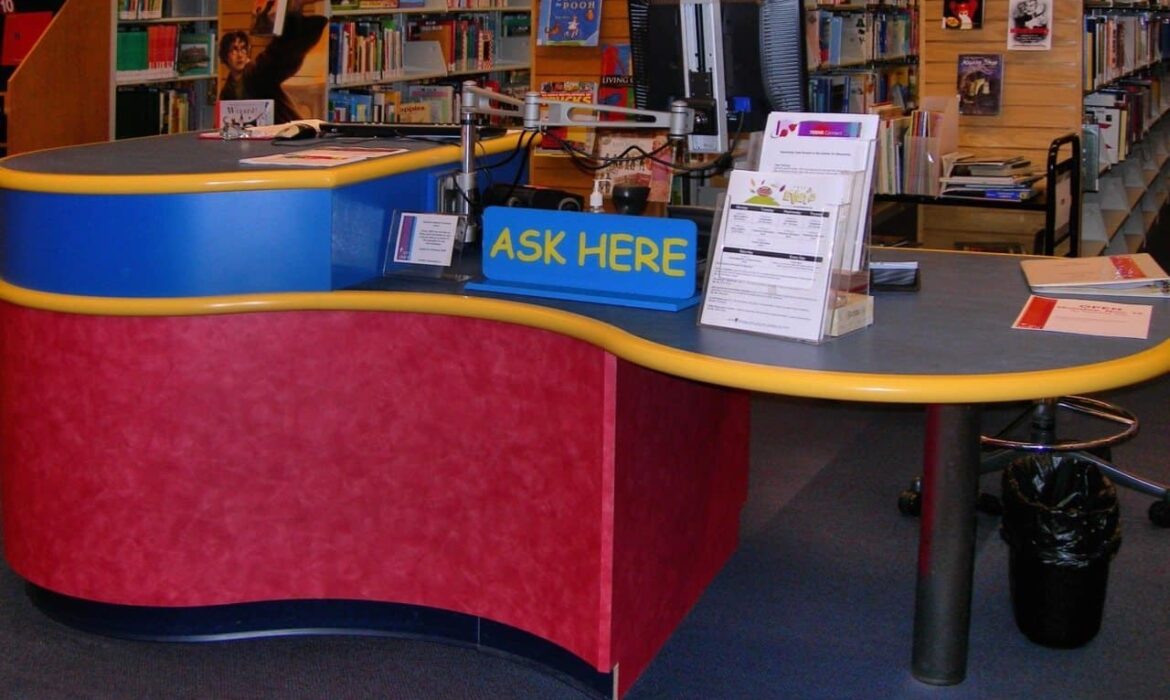Having Trouble Grasping some of the Concepts of Online Marketing?
Having Trouble Grasping some of the Concepts of Online Marketing?
Information overload
Sometimes clients have problems grasping all of the aspects of online marketing. This challenge is, of course, only natural. Any new in-depth topic is hard to understand in the beginning. If an internet marketer decided to take a look at structural engineering or corporate accounting, they’d get lost in the beginning. (Actually, they’re likely to be lost for a few months or even years).
A decision needs to get made as to how deeply you want to learn. When we go to the doctor, it’s good when they can explain a problem in simple terms, and this helps us feel comfortable. To have full knowledge of the doctors thought processes and experience might take at least a medical degree, and possibly many years of experience as well.
When developing your online omnipresence it helps to fully understand the basics and the result that you want to achieve. You don’t need to know every aspect of the digital world. This mastery will take years that you don’t have available.
So in the vein of knowing the basics, and what you want to achieve, let’s break it down.
Marketing and advertising have changed since the old days.
Internet marketing 101

Q) What’s the internet?
A) A network of digitally displayed information with links to even more information.
Q) What’s marketing?
A) A set of tactics to achieve the goal of putting your companies offers in front of more potential customers.
Q) How’s that different to sales?
A) Sales are one on one, one to a group, or a group to a group. Marketing is sales but in a volume model.
So, internet marketing is about getting your sales message or value proposition out. You want it in front of as many relevant eyeballs as possible. Excellent internet marketing makes sure that most of these eyeballs belong to your target customers.
Public relations/ advertising 101

Q) What do we want to achieve with PR or advertising?
A) We want messages about our values and market positioning in front of as many people as possible.
If we can make these messages appear in front of people who might do business with us, then this is called targeting.
Q) What is the difference between internet marketing and marketing in the real world?
A) Nothing, the internet IS real, the people looking at your website or advert are real as well.
Where do we want our message to appear? Everywhere! Or at least in as many places as possible. If these places are where your target customer hangs out, then this is perfect.
Let’s draw a comparison to traditional PR or advertising. If you came up with a remarkable product and a buzz started to occur, how many news channels would you want it to appear?
… 1?
… 20?
… All of them?
… All news channels all over the World?
Unless you’re as amazing as Apple, global domination is unlikely. So you start with as many channels as possible and try to target them.
If you created a billboard advert, where will you want it to display?
… In your local city?
… In every city?
There are too many news channels, and too many cities to make global domination viable or cost-effective for most businesses. This challenge means that you pick the most relevant to your niche. You choose places where your target audience is most likely to see them and take action.
Finding customers or them finding you. Push/Pull
Just as with traditional marketing, in the online space you can create ways for your customers to find you, or you can go to them.
For example, imagine that you create a helpful infographic about geology. It helps a geology student visualise a typical cross-section of the earth that shows the likely rock formations that contain hydrocarbon deposits. You might help them pass their exams. If when they visit your website, they also see that there are other valuable resources, and a mailing list- they might sign up. Someone like this will keep being ‘pulled’ back to your website because it is so helpful to them.
Over time, geology professors might link to your helpful information from their blog, or from their university resource page. They’d do that to allow their students to find it, and your SEO backlink profile will become more powerful. Your geological formation infographic will feature high in the search results, pulling more visitors to your website.
An example of push advertising is paying for a Facebook adverts or Twitter adverts that appear right in their stream next to the updates from their trusted friends and colleagues. They see your message in a trusted place.
Just as in the ‘real world’ of newspapers, leaflets and magazines, online there are better places to put your message. (Most places would be a waste of time, due to targetting). Due to the inter-connectivity of ‘the web’ online efforts can be continued on a steady basis, the results will be cumulative.
The goal would be to have mentions, write-ups or links on every news site, every industry site, every related blog. You’ll never be able to appear on them all. If every month you create or find a few new places to put your message, you’ll build momentum.
Common Questions From New Clients
Common Questions From New Clients
I’m always happy to answer your questions. It’s likely that If you have a question, others will too. You can ask questions however and wherever you want to.
One of the reasons why I’ve connected my social media accounts to this company website is so that you can approach me directly. Another reason is so that people can find me and communicate according to their preferences. So, feel free to ask questions at the bottom of this page, or through Email, Linkedin, or Twitter.
From time to time, I use Q&As as a basis for articles so that that future clients can benefit. This publishing also saves repetition for the more common questions.

Our typical client and visitor is a seasoned expert in the oil and gas industry. They’re either an owner of an SME in their specialist area, or are responsible for advertising or the company website. While they’re very knowledgeable about their core business, with online marketing, they are at ‘learner’ status. They are keen to learn and ask many questions.
Some questions seem to come up more than others, so here are eight items that keep coming up again and again:
1) What type of SEO support do you provide?
Out of the Box Innovations isn’t solely an SEO company. Since it’s so essential to every website, we spend as much time on SEO as anything else.
We advise on SEO strategy and provide services such as on-site optimisation, keyword research, competitor research, link-building campaigns, and content marketing.
Almost all of our previous clients are oil and gas or alternative energy related. We’re working on projects that facilitate a higher level of interaction and support between our friends and clients in the business.
The mutually advantageous structure of having a group of oil and gas companies joining together and cross-promoting each other has healthy SEO benefits in itself.
The increase in citations and URL hyperlinks will have benefits, but a primary objective is to raise awareness of each other’s companies. We join forces with companies with complementary services and products and then help each other with cross-promotion. If you do require a full SEO service, we’re confident that there’s no one more experienced in our vertical.
2) What are backlinks? What are the benefits of having them?
Backlinks are URL hyperlinks. For clarity, switch the words around. Call them ‘Links back’ because they’re a link back to somewhere else on the web.
Here are a couple of backlinks leading to articles discussing backlinks!
https://moz.com/beginners-guide-to-seo/growing-popularity-and-links
https://respona.com/blog/seo-strategy/
Backlinks go wherever we deem them appropriate. They’re usually used to quote a source, or provide an explanation to something that would be too wordy to explain in the context of the existing article. We link back to offer evidence, examples, credit and sources for what we’re saying.
Some of the benefits of backlinks are as follows:
- We can cite a source; so that if the reader thinks we’re wrong, they can take it up with the original writer.
- We can help educate our readers without having to explain every single technical point during the body of the text.
- We can link to others as a recommendation and ‘hat tip’ to the work that they’ve done.
- We can link to other work that we’ve done, to keep the reader engaged in our message, rather than moving on to another person’s website.

The main benefit for SEO purposes is related to the way that the search engines place different pages in the search results. Google pioneered the use of backlinks as a quality signal in their algorithm.
They effectively count links as ‘votes’ for a particular page on the web. Of all the different components to a search result, this is the most significant factor in the placings. There are more than 200 various factors in Google’s algorithm, all with different weighting.
If there are two very similar and helpful articles on the same topic, the one with the more powerful link profile will show higher in the search result. (If all other 199+ factors are equal).
An interesting part of the way that Google counts these ‘votes’ is that they’re not all equal in weight. Unlike in a democracy where a circus clown’s votes count as much as an Astrophysicist, Google would weigh these votes. So, a backlink from a government or educational authority might be worth three from a mainstream news website. A typical news website might have more power than a quality brand. The quality brand might have 50x more link power than a brand new site. (These numbers are for example only, Google’s actual algorithm is a secret).
3) We already do our SEO and social media – How will it benefit us as a company if we work with you?
If you’re already doing these things, then you’ll understand the benefits. You’ll also know that there’s no ‘finish line’.
Just like an arms race, all competitors keep going to become stronger and more powerful and influential. If you see benefits, then you’ll want more of the same. If you haven’t seen benefits, then it might be that your competitors are too far ahead still and that you need to do more.
Each niche is different, some have very little competition, and some have a lot, some companies will get more benefits than others. We can look at each company on a case-by-case basis to assess the potential benefit.
4) Does social media activity influence SEO?
Social activity is one of Google’s ingredients to their algorithm as a quality signal. In combination with other SEO tactics, social media will help. But it’s not cost-effective to focus on social media for this reason. Social media signals are weak from an SEO point of view. Social media is for networking and getting in front of target customers at the place where they spend time online.
5) How do you assist in building our social media presence?

Just as with the answer regarding the SEO work, the social media help that we provide will either be primary, or strategic.
Please bear in mind that more prominent social media management and SEO companies often charge companies thousands, or even tens of thousands of pounds/dollars every month.
The main benefit in dealing with Out of the Box Innovations is in our knowledge of the oil and energy industry, and the established community-related cross-promotion. Our deep industry experience helps with the primary purpose of promotion and collaboration.
6) I understand what you’re trying to do, but as more companies join you as clients, will it not become more difficult for my company to stand out??
At present, all of the oil and gas companies that we’re advising are small to medium-sized entities that are non-competing. If there were 100 recruiters, 100 trainers, and 100 valve manufacturers, then some benefits might be diluted. If someone asked us for a personal recommendation, it might be hard to choose. Other benefits, such as interacting on social media and cross-promotion, would be amplified.
If everyone worked on their online presence at the same time and the same rate, their internet exposure would stay the same. In reality, though, new companies are embracing the full benefits of the internet all the time. We could ask what if your competitors were all there and you aren’t?
7) How will I know if I’m receiving a good ROI?
In advance, no one knows how much benefit will be attained by expanding their online presence. It’s why we recommend a smaller work scope and a low price point for initial work. After improvements have been made, and plans are progressing, visitor referrals can get tracked, and numbers evaluated.
It’s also likely that you’ll find out how customers found you because some will tell you. Others will send messages through social media or will email directly through the contact form on your website. Perhaps the question of ROI will be more relevant after a few months when you decide whether to increase your efforts.
8) If you assist with SEO for our company, will our company appear higher up on the search engine rankings??
It depends on how competitive your niche is. If you’re in a more competitive space, you won’t suddenly overtake the larger companies. Some got established over time, and others spend thousands every single month on SEO or social media management.
In smaller niches, then ten backlinks might cause an excellent movement. A benefit of expanding your online presence is for collaboration and cross-promotion, not just to appear higher in the search engines.
Another point to remember is that when starting online, you won’t know where the big wins will be, and what will be less effective. First, you get the basics up to date, and then there’s a process of outreach, promotion, content creation and syndication. We can test and scale, and we double down on winning strategies and shelve less productive techniques. We keep doing this until we find a long-term strategy that suits your business and your customers.
How do you advertise in a downturn?
Expanding while you’re contracting
During good times, business often seems to happen like clockwork. If your offering is market worthy and well-priced, as long as you’ve some smart marketing in place, you’re going to be busy. Unless you make some huge mistakes, you’ll find that customers or clients come back for more, and refer others.
Often business owners see there’s plenty of profit available for advertising, but wonder whether they should bother? Why spend money when you’re too busy to handle extra work?
Then, the crash comes. Sometimes it is a credit crunch, and sometimes it’s foreign competition. Right now, many of our clients and contacts in the oil and gas industry are struggling to make sense of the prolonged drop in oil prices. Whatever the reason for the downturn, profits drain quicker than you can imagine, you think that one bad month could be an anomaly, suddenly it’s twelve.
Now you’re faced with a dilemma, do you advertise at a time when you can least afford it? Do you invest in new products, services or technology?
How can you put an expansion plan in place when you don’t know what the future holds?
Picking yourself back up and reversing the downtrend
If you’re not ready to close your business, there’s a solution that doesn’t involve much investment. One that can help you turn around much quicker while having a stronger foundation.
The purpose of advertising is to create brand awareness, as well and attracting customers and making deals. For an extended period, ‘traditional’ advertising was the only choice (TV, newspaper, radio and so on).
Traditional channels have gradually become less effective in the last 15 years or so. 20+ years ago large companies spent a lot of money on TV, billboard, newspaper and other types of advertising. While they hoped for the phone to ring as a direct result, they also wanted to create brand recognition.
There was a phase where banner ads on websites did very well. Over time, all blatant advertising has become less effective. Now, even website banner and click ads are becoming less profitable.
The objective of building brand awareness, and getting the phone to ring can be done now for free, by smart use of the internet tools we have available.
Most buyers are overwhelmed with sales and marketing messages to the extent that they are becoming ‘ad-blind’. Many people now block adverts in their browsers or watch TV channels that don’t have adverts. One reason why people like ‘on-demand’ TV is that there are no ‘annoying adverts’.
What’s taking over from interruption type advertising is providing trust-building messages regularly. The internet allows us to reach out to thought leaders, influencers, and company decision-makers in a way that’s difficult to achieve in person.
During a downturn, you’re more likely to get peoples attention than during good times, because these people are looking for suggestions and answers to their problems. Whether traditional advertising is the best way to do this is questionable and niche specific.
Fortunately, through online avenues, you can achieve the same business goals, for a fraction of the price.
If you’ve staff that are less busy because of the downturn, encourage them to share your companies message. They can do this on LinkedIn, Facebook, Twitter and in online groups.
They can do it by commenting on industry-related forums and even on competitors blogs! Steal their audience from right under their noses! Every single employee can become brand ambassadors in the way that they conduct themselves online.
You’ll save money, and possibly get a better message out into the marketplace. If you approach online networking from an angle of understanding your customers, and caring about the result that they’ll achieve, the message will be more powerful than a ‘special offer’.
Our Digital Marketing Process
Our Digital Marketing Process
Start on the right marketing path
(Or take a detour to a better one than the one that you’re currently on)
By now, you’re probably getting excited about the prospect of thousands, or even hundreds of thousands of new visitors coming into contact with your business.
You probably already have the basis of a way of creating or revitalising your company’s online presence. Online marketing is just like offline marketing in so many respects.
Nothing is more important than having a good plan.
Depending on what goods or services you sell, you’ll have more or less of a captive audience to listen to your value proposition. If you sell houses, you might be able to talk to a prospective client for half an hour even if they’re not interested. If you conduct seminars, the audience might feel like they have to stay all day, because they paid upfront and want to get as much as possible in return.
Online, things are very different, and attention spans are much shorter. This length of attention is one of the main differences between offline and online businesses. Visitors can back-click to their search results in a few seconds if it looks like they haven’t found what they want.
Because of this, you have to distil your sales message to make it instantly recognisable. At a glance, each page of your website should tell a visitor how they will be enlightened or entertained. If they’ve arrived at your site in error, that’s fine, but if they’re a suitable prospect, then you need to engage their attention quickly.
Gather information about your business

To proceed most efficiently, you need to collect some information regarding your business, offers, and your favourite type of client or customer.
Before getting started in helping you with your online campaign, we need you to gather some information. We’re unlikely to be experts in your particular sub-section of the industry. While we can research, guess and extrapolate, we prefer some factual input from you to make sure that we’re on the right track.
As you’re probably aware, internet search engines use algorithms to order data. The most important aspect of this revolves around keywords, key phrases and associated synonyms. One of the best ways of increasing online visibility is to identify which of these words and phrases best relate to your business. We then use these words and phrases liberally, in as many places as possible alongside your company name. (We use these words as much as possible while making sure our content is very readable. We also avoid overuse of keywords).
We also ‘spoon feed’ these words and phrases to the search algorithms in a way that ticks as many algorithmic boxes as possible. There are many other tasks ahead, but keyword research and proper use is the most crucial building block, along with link building.
When we build links carefully and gradually across the internet, they have to be in blocks of text that also contain relevant keywords and phrases.
We need to answer some critical questions
So, we start the process with a few questions that need to get answered concerning your business.
These are the most important questions to ask:
- List as many keywords and key phrases that you can think of that apply to your business. If you sell bicycles, then you will write ‘men’s bikes’, ‘men’s bicycles’, ‘women’s bikes’, ‘women’s bicycles’, all the way down to ‘cycle chain’ or ‘bike sprocket’.
- Who are you targeting? I.E. Who’s your perfect customer? Who do you want to find your website and take action that leads to revenue?
- Give us a 30-second ‘elevator pitch’ for your company. This elevator pitch should be more important than any mission statement.
Do you know what an elevator pitch is? Just in case there’s a quick explanation:
When you’re at a dinner party, and someone asks you what you do for a living, there can be a tendency to ‘dress up’ the explanation. Many of us like talking about ourselves or our business, and we can effortlessly bore or confuse people. If you get in an elevator with someone and they ask you what you do for a living, or what your company does there’s little time.
A badass businessperson can very quickly sum up what they do, who they do it for and the results they get.
(The value proposition, target audience, and problem solved).
We need to distil this into a few sentences because this fits into the attention span of an average internet surfer.
When a client comes to us for content marketing assistance, first of all, we ask them to answer the three questions above. After this, there are a few more questions that we need answering for us to help them:
- Please list direct competitors websites for your business. We can research how well they’re doing in the internet marketing areas that we’re targeting. We can audit backlink profiles, for example. This analysis means that we’ll know how hard they’ll be to outrank, and how long it might take. When reviewing competitors backlinks, we can find opportunities to get the same backlinks as them. Then if we get some extra ones, we should be able to outrank them.
- Please list places that your target audiences go online. (The people and companies from question 2 above). The best place to recruit a larger audience is to go and ‘hang out’ with them. LinkedIn and Facebook are two prominent places, but please list any others that come to mind.
- Please provide admin and login credentials for anything that fits into our action plan. We DON’T need to see anything valuable such as your hosting, domain or email management accounts. We DO need to be able to log in to any Linkedin, Twitter, Facebook or any other social media accounts. We also need to be able to log into the admin control panel of WordPress, or whichever content management system you’re using.
Our immediate strategy

Research is the first step. We’ll audit your website for statistics relating to site speed, health, and seo ranking factors. We’ll also do this for several competitors. (If you don’t have a website yet, we can focus on competitor intelligence).
While we’re conducting research, we’ll get started on developing the social media presence for up to five social media channels. We’ll organise a platform where any of us can log in and review, edit, comment or post on any article across the whole set of social media accounts.
We’ll put a system in place where we can set up alerts for when any of your businesses keywords get mentioned across the internet. From this alert, updates, links or articles can be posted across the social media platforms. This system will keep a regular supply of ‘hot news’ that can get discussed.
We’ll compile a list of relevant backlink targets. Some of these will be easy to create, some will require outreach, and others might cost money (e.g. sponsorship or high-quality directories). These links will be built gradually and carefully so as not to cause unnatural spikes that search engines might not like. After a month or two, ‘before and after’ external audit tools will show clear progress across the web assets.
Longer-term strategy can then be discussed, depending on initial results. Our approach will evolve as we shelve misses and double down on hits.
Reach out to us if you have any questions!
We hope that we’ve explained our process clearly, feel free to supply as little or as much information as you have time to compile. We can do our research, but some of these requirements can only come from you, and all the elements are best coming from you.
Content Marketing Strategy Ideas
Content Marketing Strategy Ideas
We want to get found online, but what exactly do we want our customers or clients to see? Here are some simple ideas to help you achieve the results that you desire.
Following on from our article about creating an internet omnipresence, we examine some ideas around how to go about this. We can start with our website that needs to get created or expanded as much as is feasible.
The idea here is to put a volume of knowledge onto our sites so that we offer more in-depth information on as many topics as possible. We want to include as many industry-related keywords and key phrases as we can, and use synonyms and variations in the wording of phrases. This diversity will send signals to Google, Bing and the other search engines that we are authoritative in our area, because of the depth. Because of the width of topics, we’ll be more likely to be included in longer and more complex searches from users.
When people search nowadays, the terms are far more varied than they used to be, and the search engines can differentiate this and offer accurate results. Both search engines and searchers have evolved.

Create content about every topic that you can think of
So, the idea will be for us to cover every conceivable relevant topic in our niche. There’ll be limits to this, as you wouldn’t want to put sensitive company information, or your successful marketing tactics online. You should cover every topic in a way that helps a visitor. Hopefully, we leave them wanting more by offering ‘teasers’ of better information or solutions. They find out more if they buy/sign up/enquire or whatever goal we have in mind for them.
We want to make our content clickable, linkable, and helpful.
An example of clickable content would be a headline and subject that piques curiosity. This headline encourages searchers to click on our result in the search engines rather than someone else’s. (Not to be confused with clickbait!)
Clickable search results can help increase your ranking position. Imagine one of your posts is at number seven in a search and it’s getting more clicks than number six. Googles algorithm will detect this as a signal that your result is more relevant to the search and often switch the results.
Examples of clickable headlines/topics:
‘Discover the 3 best ways to avoid caking when applying eye makeup.’‘The biggest mistake that new engineers make that can hurt their career.’‘The solutions to the 5 most common challenges while chopping meat.’‘The top 10 countries to work in as a chef.’‘3 regions that you should avoid visiting altogether at the moment.’
People might get curious if the article indicates that it’ll help them avoid a big mistake or be better off somehow.
A piece of linkable content is something that another webmaster or author might want to share with their readers.
When writing an article, it’s often helpful to include statistics. Other times complicated concepts are introduced that can’t get explained in the limited space in the content.
If I were writing about the increasing popularity of home-delivery gourmet food, I might want to show a graph or an infographic. I’d include one that I found through Google and link back to the source. If that source happened to be you, (because you created an attractive piece of content), my link back to you will increase the power and authority of your site.
These links are added to help people find out more about a topic. They’re also similar to a bibliography in an academic book or paper. The reason why bibliographies exist is to show that research has gotten done, add credibility to the writer, and for them to cover themselves.
(It is OK to use small snippets of text or data under ‘fair use’ in copyright law.)
Unlike a bibliography, a backlink is sending ‘link juice’ and power back to the source. Over time these links make the whole destination site more powerful and authoritative.
This increase in website authority is what we aim to achieve.
Examples of linkable content:
- An infographic where information gets displayed visually.
- A controversial viewpoint that causes an opponent to write an article debunking it. They’ll link to the argument they’re referencing.
- Something groundbreaking, remarkable or funny. Something that people would want to share with their peers or associates.
- A resource that others would like to share. For example, you might create a free downloadable safety manual. You could then send an email to training managers, letting them know that they can use this for free to help them in their training programme. You would then ask if they could include a link to your download page from their website so that as many of their visitors can benefit as possible.
Valuable content will solve problems and answer questions.
These pages will correspond to actual and typical questions that searchers have.
Examples of valuable or helpful content:
‘Solving the problem of trouser legs getting oil from bicycle chains.’‘How to reduce or eliminate lower back pain.’‘Free downloadable map of the park.’
These types of topics will naturally attract searchers. If you want ideas for creating additional articles like this, Yahoo Answers or Quora are good places to look.
We can search for questions related to our industry, then answer them in as much detail as possible. If we can do this through a video, Slideshare or Infographic then even better.
These new articles will be helpful, but also clickable and linkable.
Easy wins
1) Re-purposing existing content.
If you look through the emails or newsletters that you’ve sent to subscribers, some will be out of date. Other emails will still be timely. The best ones will be timeless or ‘evergreen’. If you look through your emails, notes, reports or anything that has not gotten published online, ask yourself whether this work could be re-purposed.
If you don’t have a subscriber list yet, then look through emails that you’ve sent to colleagues, customers or suppliers. You’ll find that lots of these can be tweaked and changed into blog posts or articles. Make sure you change names or specifics or ask permission from other collaborators if you want to use these details.
Anything that might be clickable, linkable or helpful can be re-jigged into a blog post, report, ebook, or infographic. This practice means that the work you’ve done in the past can be recycled and additional value can get garnered from it. Use topics that are as helpful as possible without letting out trade secrets or any ‘secret sauce’ from your in-person presentations.
2) Create a Glossary of terms which will be a powerful page on each website. With so many keywords on one page, this content is likely to appear in many different searches. It’s also linkable and helpful.
3) Create an FAQ page, (or expand an existing one), for the same reasons as the Glossary of terms.
4) Think of any top 10 lists for any aspect of each business. Searchers love top 10 lists.
Conclusion
To think about starting to write articles can be daunting to someone who doesn’t do it regularly. It’s like anything in life; it gets easier with practice.
We don’t have to think of article ideas for the next year. We only have to get inspiration for one or two. Hopefully, after reading this, you have an idea for at least a few. We get these produced, and during the process, inspiration strikes, and within a few days, there are more ideas for articles.
Fast forward two years, and we have a hundred pages or more on each website. Visitors are finding us from different keyword searches going into the thousands. This rise is partly thanks to the increase in authority. It’s also because of the number of keywords, and the different wording of search queries matching the content on our sites.
At this point, a new competitor has an uphill struggle trying to catch up with our sheer volume, depth, and width of written material. This material will be on domains that have a track record of producing valuable content for years, with many backlinks to internal pages of the
Need an online presence? Get an online omnipresence!
Need an online presence? Get an online omnipresence!
How’s your online presence?
Almost all businesses need an online presence. Most business owners realise this. The problem is, too many company websites look old fashioned and out of date.
So many look like they got created because:
… Some bright spark encouraged the boss to get one, many years ago. (The bright spark has since left through frustration).
… The boss heard that they really ought to have one to keep up with their competitors and ‘stay up to date’. That was as far as the online efforts went, a few thousand invested into a website that just sat there stagnating, receiving virtually no visitors.
Why do most websites look like this? They say that appearances can be deceptive, but in this case, these are the two most common situations that explain what has happened.
So, with TV, print and billboard advertising becoming less and less cost effective, what will you do? Will you keep hammering the telephone to try to keep new business coming? More client visits? Expensive prima donna salespeople, who don’t have enough leads, and can’t close enough new deals to be cost-effective?
Anyone who has got their online efforts on track will agree, having people calling and emailing you to do business is far better. Even better still is to get up in the morning and take a look at how many orders came in overnight while you were off duty.
Speaking of making money in your sleep, doesn’t that sound a bit like the online dream that many marketers try to push with their guaranteed push-button systems?
What’s the truth? Is it easy to create or expand an online business?

What are the pieces of the puzzle in relation to creating an online omnipresence?
The key is in the word business. What does your business offer, how many clients do you have, and how healthy are your margins? An already successful business can become even more successful by improving their online presence. If on the other hand, you have an unsuccessful business, it’ll probably fail online too.
So, assuming you have a successful business…
(Meaning that you have a product or service that people will pay you for, at a rate that allows you to pay all of the bills, and some extra to use for expansion).
What then?
You go online. Perhaps you sell a physical branded product that can be sold on Amazon, or through an online store. Perhaps you sell a service in the local area, you’ll want to create or improve a website that’s search engine optimised for the local area. You’ll want to make sure your business is listed in Google My Business (the new ‘Google Places’), and featured on local directories and by local media.
Many businesses don’t fall into these clear-cut strategies. You might want to look for customers in other areas. You might be choosing between paid advertising, social media marketing or trying to find affiliates to sell your product for you.
In many ways, creating or improving your search presence is an experiment in itself, so the best way to go about it is by using a blanket strategy. We call this the online omnipresence approach. Instead of choosing A particular avenue, you’ll want to pursue ALL that are suitable for your business.
You move from one to another mastering a technique at a time, until your customers are finding you everywhere. Unlike an offline business where the process is more labour-intensive, online efforts are in many ways cumulative.
For example, if you opened a new restaurant and gave out flyers in the street, what happens when you stop giving out the flyers? New people stop seeing them, and you are relying on different marketing methods. Imagine if you used the same time that it took to create the flyers, but added your business to Yelp and Zomato, new potential customers can keep seeing your message for weeks, months or years to come.
When movie film reels and plastic records got invented, actors and singers were able to become far more successful and wealthy. Suddenly, there was no need to perform every week at the theatre or go on tour. Their performances could be heard and viewed by millions, for decades. This principle embodies the logic behind nurturing a successful online presence.
Sam and his model train shop
So, let’s imagine that you own a model train shop. The local fanatics know who you are and where you’re situated. Every now and again you set up an exhibition and get some new publicity from your local newspaper. How will your business grow? You’ll probably be in a situation where you rely on Christmas sales every year to keep going. One bad Christmas and the following summer is going to be hard.
Now imagine a different city and a different store. The store owner there is called Sam. Sam has every product that’s stocked in the store also listed on eBay, Amazon, AND a Shopify E-Commerce store. He’s getting more significant discounts from his suppliers because of the volume of business that he’s doing.
While people are competing on price online, Sam isn’t. On his blog, he posts instructional ‘how-to’ posts on every aspect of building miniature landscapes to display his trains correctly. People are so happy with the advice, they’re less price-conscious.
Not that Sam doesn’t offer bargains because he does. His products are bundled together in packages that get specially priced. This tactic works because, in the bundle, two items are very profitable, and two are ‘loss leaders’ to make the package price more attractive. The loss leaders are lightweight, so they don’t affect the postage and packing cost much.
As well as the instructional posts on Sam’s blog, he has a YouTube channel. The YouTube channel, and a recently started Podcast are found and downloaded all over the World. Sam is even starting to appear on other peoples podcasts, not just concerning model trains, but how to run a successful online business as well. He speaks at events and can’t believe that he gets paid for it.
The model train shop isn’t just a shop, and the ‘shopkeeper’ isn’t just a shopkeeper. Sam is now a renouned expert, and the shop is more of a showroom, especially now it has moved to its new premises that are ten times the size.
Sam, (the model train expert), now has four e-books published on Amazon Kindle, one of them is only 50 pages long and retails at £3. Between the four e-books, the revenue is about £2500 a month. This modest amount is excellent because it’s an entirely passive income. The books are delivered by Amazon, as is the monthly cheque.
Sam’s model train store now has the most substantial following on Facebook, Twitter, and Instagram in its niche. Products and offers are listed there by an outsourced online advertising specialist. Sam only checks last months revenue, and next months spend. The ad guy is now using Google Adwords to advertise on other peoples model train websites. Sam can’t believe that this is allowed. But it is.
Other industry websites publish Sam’s articles. These ‘guest posts’ allow return backlinks. These gestures amaze Sam as his website is better, so too are the value of his product bundles. Why would competitors send their visitors to him? But they do.
The hardest decision is when to slow down. How much success is enough success? Since Sam put a general manager in place, he doesn’t need to do so much. He can focus on his passion, which is to create a bigger and better model railway system. But it’s tempting to take his Amazon UK listings and bundles on to Amazon US, France, Germany, Australia, Japan, and anywhere else. After all, they already know Sam through his blog, YouTube videos, podcasts, guest posts and speeches.
Sam often sits back and wonders what his grandfather would think of how the small family store evolved with modern technology.
So, this story is excellent; it’s fictional but based on reality. You might be wondering whether this would work with a service, or with other products. We might need to modify or tweak the process. Some online avenues will be suitable, and some won’t, but let’s explore them.
It might seem like a lot of effort, but the hard work is mostly in learning each new technique. After that, many processes or marketing materials will be in place permanently, such as the podcasts, guest posts and e-books. Other tactics, (once proven profitable), can be outsourced or carried out by staff members. (For example tactics such as running Adwords or eBay campaigns). At some point, most successful online business owners find that the business almost runs itself, just as with offline corporations.
Hopefully, you understand the difference between an online presence and the online omnipresence that we promote. Can your business be omnipresent on the internet?
Contact us and we’ll give you our best opinion.







